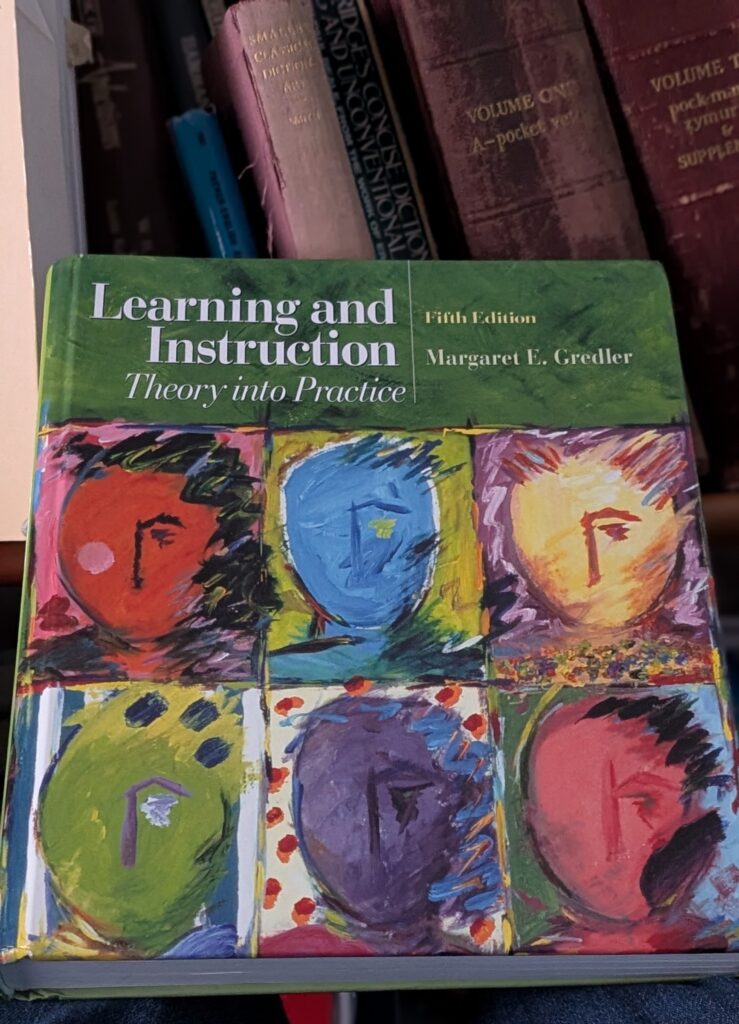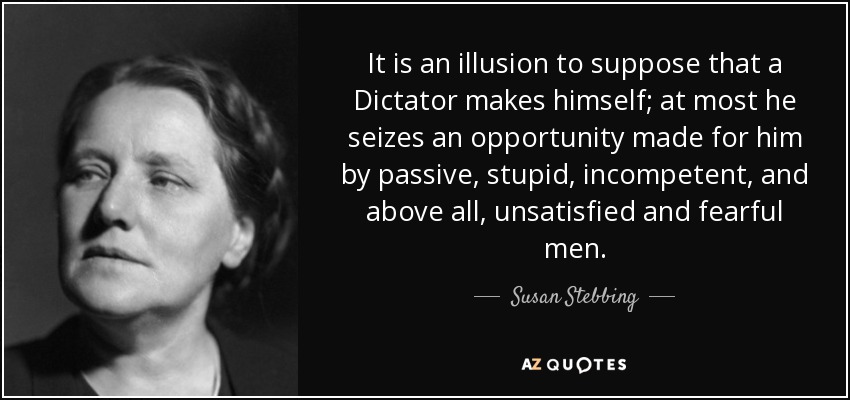
Part I: Catching An Attitude
Robert Reich is likable. Much of what he proposes as solutions for our country makes sense even if I find the adoption of these desired progressive systems increasingly unlikely. The compelling and articulate economist, however, started to frustrate me greatly when again and again Instagram fed me advertisements from him stating that our governmental problem was due to an ignorant populace, and, therefore, the solution was to educate them, which could be helped if I would only share my credit card information.
For those familiar with my most prominent and long lasting straight job—Chief Learning Officer at Educational Testing Service (ETS) —my stance against education in this case may seem weird, but the more time spent in so-called ‘change initiatives’ the more one realizes the limits of education in those contexts. The more I learned about learning through endless experiences the more I appreciated its limits in changing how people thought and acted.
The context for former Secretary of Labor Reich’s social media panhandling is his earnest and honorable desire to change the opinions of Americans especially those who might be persuaded to vote differently than they did in 2016 and again in 2024 when they elected a man that roughly half of the country finds ridiculous, horrendous, and nightmarish. There’s nothing wrong with Reich’s aim; my quibble is with the approach. It won’t work and getting people to understand why is important enough to spur me to take time away from playwriting and production. I’m going to explain my take in three posts, but here’s the short version: People act primarily according to their attitudes, not in some sort of lockstep congruence with the facts presented to them. What Reich proposes won’t work, hasn’t worked, missus the essential point. (I’m not the only person coming to this conclusion and I’ll reference a few of their slightly different takes along the way.)

Things to do: change millions of attitudes, pick up dinner, write a blog post
The good Mr. Reich is just a symbol of the problem of mistaking what matters most when people make choices as to how to behave. There are scores of hectoring voices on the Internet bemoaning the influence of misinformation, and cursing futilely yet again the inaccuracies and outright lies of Fox News. (Full disclosure: when that network was beginning over a quarter of a century ago, their brass hired me to implement a performance management system. Everybody was nice to little old liberal me; they paid very well. And just before one of my presentations to its manager corps coincidentally on the day of the 2001 Supreme Court presidential election decision, Roger Ailes gave a speech asserting that Al Gore was an evil man. Tough act to follow with my spiel on deciding criteria for bonus pay.)
I don’t think the misinformation matters that much. Or at least it’s no longer a prime cause of how people vote especially in presidential elections in this country. Attitude is because attitude precedes and even nullifies information. If those in the so-called’ resistance’ continue to employ strategies based on informing citizens and thereby altering their electoral preferences then we are in for a continuation of Trump World. And I’m right behind you, resistance comrades, but don’t ask me for any more money until we get an accounting of why $1.5 billion couldn’t get Kamala Harris elected over a convicted felon.

Discovering the power of attitude proved highly consequential in my business career. The late Margaret Gredler, prolific author and Professor of Education Psychology and Research at University of South Carolina for almost forty years, switched on the light bulb in my brain on this subject via her classic textbook — Learning And Instruction Theory Into Practice. In my first year of graduate studies for a Master’s in Education, my professor, Laurie Dringus covered a chapter a week. We bobbed from theory to theory; Vygotsky to Skinner, Bandura to Piaget. A banquet of dizzying and defining takes on how learning happens. But midway through the semester came the material that I would return to again and again in real world situations: Robert Gagne’s conditions of learning. (I know Gagne’s conditions — the internal states required in the learner to acquire new skills—aren’t the only ways of looking at learning and they have (GASP!) behaviorist tinges, but they have utility especially in the area we’re looking at: attitudes.)
Like so much of innovations in education in the second-half of the 20th century, World War II inspired Gagne to look at what were the conditions essential to developing expertise in real world tasks. He proposed a learning hierarchy in which attitudes are one of the five varieties of learning along with verbal information, intellectual skills, cognitive strategies, and motor skills. I was later to Graduate School than most students and already had worked for years as an organizational consultant on a variety of issues from training programs on sexual harassment to strategy sessions for new businesses. What these gigs all had in common was that the sponsoring organization generally was trying to change how people behaved. So work that would look at the learning and adoption of a new attitude was right up my alley.

Gagne described attitudes as ‘predispositions for positive or negative actions toward persons, objects, and events’. If you wanted somebody to learn a new attitude your reason for doing that was that you wanted them to choose a personal action toward or away from that trio of objects, events, and/or people. My earlier career in behavioral health provided a very skeptical perspective on such campaigns. Anti-drug promotions such as ‘just say no’ were ridiculed on the ground by practitioners as a fabulous waste not only of money but of an even more precious resource: public attention. From the perspective of drug and alcoholism counselors, and I was one of those from 1976 until the late 1980s, showering the entire populace with messages that were certain to be unheeded when those resources could have gone toward more targeted populations that actually were either at risk or already dependent was maddening.
I moved out of that field for a variety of reasons including the advent of managed care, but this kind of moralizing mindlessness was one of them. Now in a Graduate School classroom I read the following passage from Gredler’s book:
“In contemporary society, various institutions and individuals attempt to establish and modify attitudes. The most pervasive medium in this effort is television. Both commercials and other aspects of television, such as soap operas, influence attitudes toward the various problems of everyday life. In contrast to the other categories of learning, the specific conditions for learning attitudes are yet to be identified. One clear requirement, however, is that being told what to do does not facilitate learning. Reading a printed message, such as’ avoid harmful drugs,’ is not expected to have any effect on a learner’s attitude.” (Emphasis brattily added)

The last sentence from a 1974 article by Gagne illustrates the recursive nature of this problem: the facts about the limitations of various methods of learning and instruction for changing attitude are well known, but persistently ignored. Why? Because the do-gooder ‘if only those poor slobs had the right information’ mindset is itself an attitude, a “deliberately adopted, or habitual, mode of regarding the object of thought.” Adam Gopnik described this attitude amongst a certain influential cohort especially when it comes to political matters in his book Angels and Ages: “Induction and argument are the probity of liberal thought. Facts matter, logic counts, describing the stamen of the orchid exactly is worth six volumes on the metaphysics of being. The truth matters to the progress of a free nation but it matters just as much that the truth be accepted. In an open society, new truths need to be told, and new truths need to be heard.” The condition necessary for new truths to be heard is a particular attitude, and openness, a curiosity, a sense that the old truths aren’t true anymore.

And yet we continue in the same manner. In their book Metaphysical Animals Claire Mac Cumhaill and Rachael Wiseman quote Susan Stebbing from her 1939 book Thinking to Some Purpose, on what she refers to as ‘potted thinking’. It’s a long quote and a little bit of a tortured metaphor, but useful:
“Some forms of ineffective thinking are due to our not unnatural desire to have confident beliefs about complicated matters with regard to which we must take some action or other. We are sometimes too lazy, usually too busy, and often too ignorant to think out what is involved in the statements we so readily accept. …we easily fall into the habit of accepting compressed statements which save us from the trouble of thinking. Thus arises what I shall call ‘Potted Thinking’. This metaphor seems to me to be appropriate, because potted thinking is easily accepted, is concentrated in form, and has lost the vitamins essential to mental nourishment. You will notice that I have continued the metaphor by using the word ‘vitamins.’ Do not accept the metaphor too hastily: it must be expanded. Potted meat is sometimes a convenient form of food; it may be tasty, it contains some nourishment. But its nutritive value is not equivalent to that of the fresh meat from which it was potted. Also, it must have originally been made from fresh meat, and must not be allowed to grow stale. Similarly a potted belief is convenient; it can be stated briefly, sometimes also in a snappy manner likely to attract attention. A potted belief … should not be held on to when circumstances have changed and new factors have come to light. We should not allow our habits of thought to close our minds, nor rely upon catch-words to save ourselves from the labour of thinking. Vitamins are essential for the natural growth of our bodies; the critical questioning at times of our potted beliefs is necessary for the development of our capacity to think to some purpose.”

For those of you who don’t know what potted meat is, picture Spam
Thinking that the answer to tens of millions of people voting for Donald Trump and now not rioting in the streets at his corruption and illegalities is simply providing them more or better information is potted thinking of the most extreme variety. In Part II of this series attitudes and beatitudes, I’ll point to some of the things we do know about changing attitudes, but since this is information from a 73 year old white guy lacking the recognition of people like Gagne and Stebbing and Gopnik who already failed in this effort I’m not sure that it will do any good. But it will make me feel better to have written a protest, and in these times the least we can do is try to feel better.

More ranting about attitude as the answer to what needs to change
We have at least two big tasks in trying to save the world (including the United States) from a disaster that not even the most pessimistic among us could have foreseen. One is to mobilize the resistance to the Trump regime, educating and encouraging those who already see the evil his is doing and planning. The second task is to reach out to and try to win over as many of his supporters as possible. Robert Reich is focusing on the first task and he is one of the best in the field, as he has credibility, knowledge and a knack for communicating. But to win this fight, we have to reach into the people who were duped by Trump, and saw him as “their guy.” This is an incredibly difficult job, and you are certainly right, that facts alone are not going to do the job. Attitudes takes precedence over facts. (Here I would point to Elizabeth Kolbert’s New Yorker piece “Why Facts Don’t Change Our Minds” from February 19, 2017.) Human beings are not walking around evaluating objective facts, but react much more like sports fans who root for their team, and turn a blind eye when their team cheats. ” Reason developed not to enable us to solve abstract, logical problems or even to help us draw conclusions from unfamiliar data; rather, it developed to resolve the problems posed by living in collaborative groups.” (Kolbert))
This is soooo good, Hans. And Kolbert and LePore are in my list of sources for Parts II and III